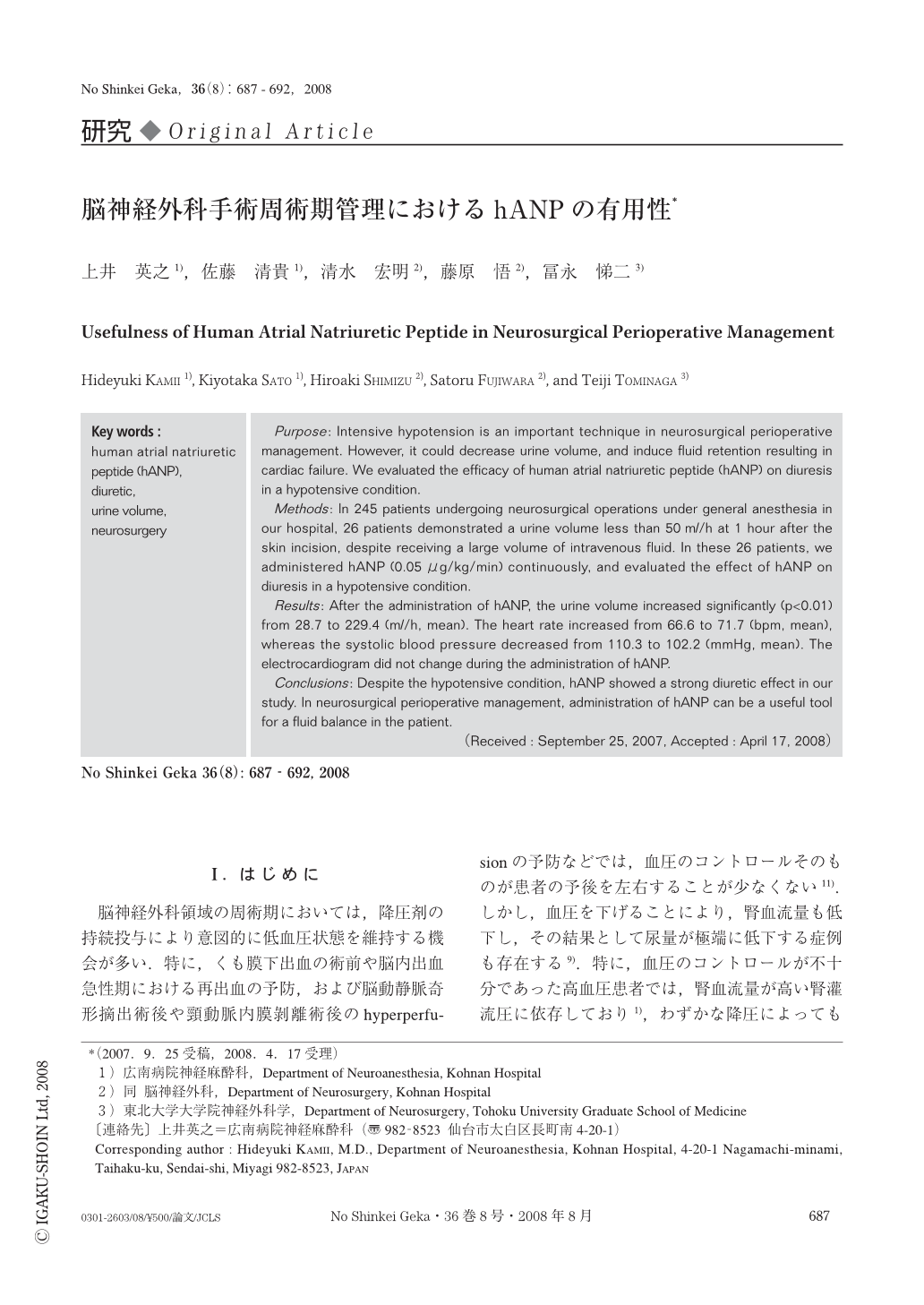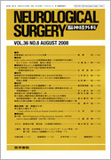Japanese
English
- 有料閲覧
- Abstract 文献概要
- 1ページ目 Look Inside
- 参考文献 Reference
Ⅰ.はじめに
脳神経外科領域の周術期においては,降圧剤の持続投与により意図的に低血圧状態を維持する機会が多い.特に,くも膜下出血の術前や脳内出血急性期における再出血の予防,および脳動静脈奇形摘出術後や頸動脈内膜剝離術後のhyperperfusionの予防などでは,血圧のコントロールそのものが患者の予後を左右することが少なくない11).しかし,血圧を下げることにより,腎血流量も低下し,その結果として尿量が極端に低下する症例も存在する9).特に,血圧のコントロールが不十分であった高血圧患者では,腎血流量が高い腎灌流圧に依存しており1),わずかな降圧によっても尿量の維持が困難になることがある.このような症例に対しては,従来よりdopamine(DOA)の少量持続投与が推奨されてきたが,効果が不確実で,十分な尿量を確保できない場合もあった.
近年,ヒト心房性ナトリウム利尿ペプチド(human atrial natriuretic peptide:hANP)が発見され,心不全の治療を中心にさまざまな分野で臨床応用されている6).その特徴は,用量依存性に利尿を得られること,また,hANP自体に腎臓保護作用が存在することである10).そこでわれわれは,十分な尿量を得られない低血圧状態の患者に対してhANPを使用し,その有用性について検討した.
Purpose: Intensive hypotension is an important technique in neurosurgical perioperative management. However, it could decrease urine volume, and induce fluid retention resulting in cardiac failure. We evaluated the efficacy of human atrial natriuretic peptide (hANP) on diuresis in a hypotensive condition.
Methods: In 245 patients undergoing neurosurgical operations under general anesthesia in our hospital, 26 patients demonstrated a urine volume less than 50ml/h at 1 hour after the skin incision, despite receiving a large volume of intravenous fluid. In these 26 patients, we administered hANP (0.05μg/kg/min) continuously, and evaluated the effect of hANP on diuresis in a hypotensive condition.
Results: After the administration of hANP, the urine volume increased significantly (p<0.01) from 28.7 to 229.4 (ml/h, mean). The heart rate increased from 66.6 to 71.7 (bpm, mean), whereas the systolic blood pressure decreased from 110.3 to 102.2 (mmHg, mean). The electrocardiogram did not change during the administration of hANP.
Conclusions: Despite the hypotensive condition, hANP showed a strong diuretic effect in our study. In neurosurgical perioperative management, administration of hANP can be a useful tool for a fluid balance in the patient.

Copyright © 2008, Igaku-Shoin Ltd. All rights reserved.


